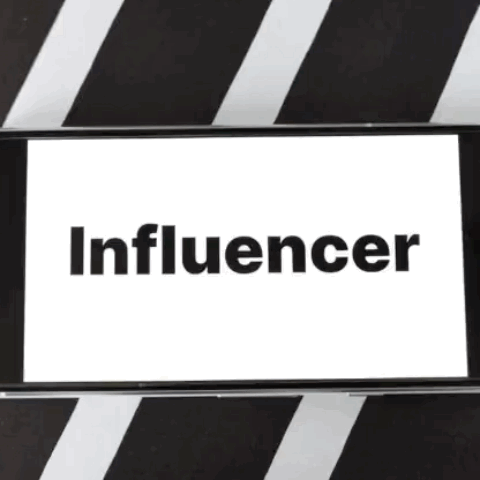
Affiliate marketing has morphed significantly over the past couple of decades.
Starting out as a straightforward referral system, it’s now a complex web where social media plays a critical role. I remember the days when marketing a product meant sharing links via email or embedding banners on websites. Those days seem so far away now.
Social media has woven itself so deeply into everyday life that it’s impossible to ignore its influence on affiliate marketing. Platforms like Instagram, Facebook, and TikTok aren’t just for socializing; they’ve become vital tools for marketers. As these platforms evolved, so did their potential for driving affiliate sales. It’s astonishing to see how a single post or story can skyrocket a product’s visibility and sales overnight.
Instagram, with its visually-driven format, became a playground for affiliate marketers. The introduction of features like Stories, Shoppable Posts, and Swipe Up links made it easier to include affiliate links naturally in content. Facebook, meanwhile, serves as a community-building powerhouse, offering groups and pages dedicated to niche markets. Content shared within these communities often carries trusted recommendations. TikTok, the newest player, leverages short-form video to create authentic, viral content that appeals especially to younger audiences.
There are real-world examples of how powerful these platforms have become. Take Kylie Jenner, for example. Her brand, Kylie Cosmetics, witnessed massive growth through her strategic use of Instagram. It’s not just celebrities either. Small businesses and solo entrepreneurs have turned their fortunes around thanks to strategic social media use. This shift marks a new era where anyone with the right approach can become a significant player in the affiliate marketing space.
The Role of Influencers: From Brand Ambassadors to Affiliate Gatekeepers
Influencers have reshaped the affiliate marketing landscape in ways we couldn’t have imagined a few years ago. What started as a hobby for many has turned into a lucrative career path. And it’s clear why: their personal brands and dedicated follower bases offer a golden ticket for affiliate marketers.
Building strong relationships with influencers is crucial. You can’t just pick anyone with a large following; it’s about finding the right match for your brand. Micro-influencers, for example, might not have millions of followers, but their audience often comprises highly engaged, niche communities. This level of engagement can yield higher conversion rates.
When selecting influencers, consider their alignment with your brand’s values and target audience. Authenticity matters more than ever. Consumers can spot a disingenuous endorsement from a mile away, and it can do more harm than good. Always look for genuine advocates of your product or service.
It’s not just about the numbers. Track performance using metrics like engagement rate, click-through rate, and overall sales generated from their links. These indicators offer a clearer picture of an influencer’s effectiveness than follower count alone. You need to understand the ROI to fine-tune your strategy continuously.
Personal branding plays a monumental role in the success of influencer marketing. Influencers who successfully carve out a niche for themselves bring more than just visibility—they bring trust. This trust translates to higher conversion rates as followers feel confident acting on their recommendations.
Ultimately, working with influencers requires a mixture of strategy and authenticity. It’s about forming genuine relationships that feel natural and beneficial to both parties.

Consumer Behavior and Social Media: Navigating the Modern Buyer’s Journey
Understanding consumer behavior on social media is a game-changer for affiliate marketers. Social media doesn’t just influence purchasing decisions; it transforms the entire journey from discovery to conversion. The way people discover, evaluate, and decide on products has changed dramatically.
People often look for social proof before making a purchase. This could be in the form of user reviews, influencer endorsements, or even comments from other consumers. FOMO (Fear Of Missing Out) plays a big role here. When potential buyers see others raving about a product, they’re more likely to want it too.
Influencer endorsements carry a lot of weight because they blend seamlessly into the user experience. Instead of coming off as ads, these recommendations feel like advice from a trusted friend. This connection makes the buying process smoother and quicker.
Consumers go through several touchpoints before making a purchase. Initially, they might come across a product through an influencer’s post. They then might look for additional information on blogs, websites, or reviews. Each touchpoint provides a chance to solidify their decision.
User-generated content is another powerful tool. Real people sharing their real experiences with a product can be more compelling than professional marketing. Encourage satisfied customers to post their own photos or reviews. This adds authenticity and builds trust, making it easier for new customers to take the plunge.
Navigating this modern buyer’s journey means you need to be present and active across multiple channels. By understanding how social media influences consumer behavior and strategically placing your affiliate content, you can guide potential buyers smoothly through their journey.

Future Trends: Forecasting the Evolution of Affiliate Marketing in a Social-First World
Looking ahead, the landscape of affiliate marketing is bound to keep evolving, driven by new technologies and shifting consumer behaviors. Staying on the cutting edge requires not just reacting to trends but anticipating them.
Emerging technologies like Augmented Reality (AR) and Virtual Reality (VR) are starting to play a role in affiliate marketing. Imagine a world where consumers can virtually try out a product before buying it, creating an immersive experience that could significantly boost conversion rates. Integrating these technologies into your affiliate strategy might require an upfront investment but could pay off hugely in engagement and sales.
Social media platforms themselves are evolving. New features are continuously rolled out that can be integrated into affiliate strategies. For instance, Instagram’s Shopping tab and TikTok’s in-app shopping capabilities are streamlining the purchasing process, allowing consumers to buy products without leaving the app. Keeping abreast of these updates will ensure that your methods stay relevant and effective.
Sustainability and ethical considerations are becoming increasingly important to consumers, and this is something marketers can’t overlook. Promoting products that are environmentally friendly or ethically sourced can appeal to a growing segment of conscientious shoppers. Transparency about these practices can build trust and brand loyalty, leading to higher long-term engagement.
Preparing for these future trends means continuously learning and adapting. Invest time in understanding emerging technologies and new platform features. Equip yourself with the skills to leverage these advancements effectively. By staying informed and flexible, you can future-proof your affiliate marketing endeavors and continue to thrive in a social-first world.
You might want to know more about the affiliate Marketing
The Ultimate Guide to Affiliate Marketing
Unlock The Secrets to Passive Income
Join Wealthy Affiliate Today Start Building Now FREE⭐️⭐️⭐️⭐️⭐️
WealthyNexusMarketing by Arisara
Empower Entrepreneurs
People Managing People is reader-supported. We may earn a commission when you click through links on our site – learn more about how we aim to stay transparent










I love how you highlighted the evolution of affiliate marketing, especially the role social media now plays. It’s incredible how platforms like Instagram and TikTok have become such powerful tools for driving sales. I also appreciate your mention of influencers and the importance of authenticity—it’s so true that genuine connections matter more than just follower counts. The future trends like AR/VR sound exciting, and I’m curious to see how they’ll transform the space even more!
Thank you for your thoughtful comment, Maksim! I’m glad you enjoyed the post and found the insights on social media’s role in affiliate marketing useful. It’s amazing how platforms like Instagram and TikTok have shifted the landscape, and you’re absolutely right—authenticity and genuine connections are key to building trust and driving sales. As for AR/VR, it’s definitely an exciting frontier, and I think we’ll see even more creative ways to engage audiences in the near future. Thanks again for sharing your thoughts, and feel free to reach out anytime! 😊